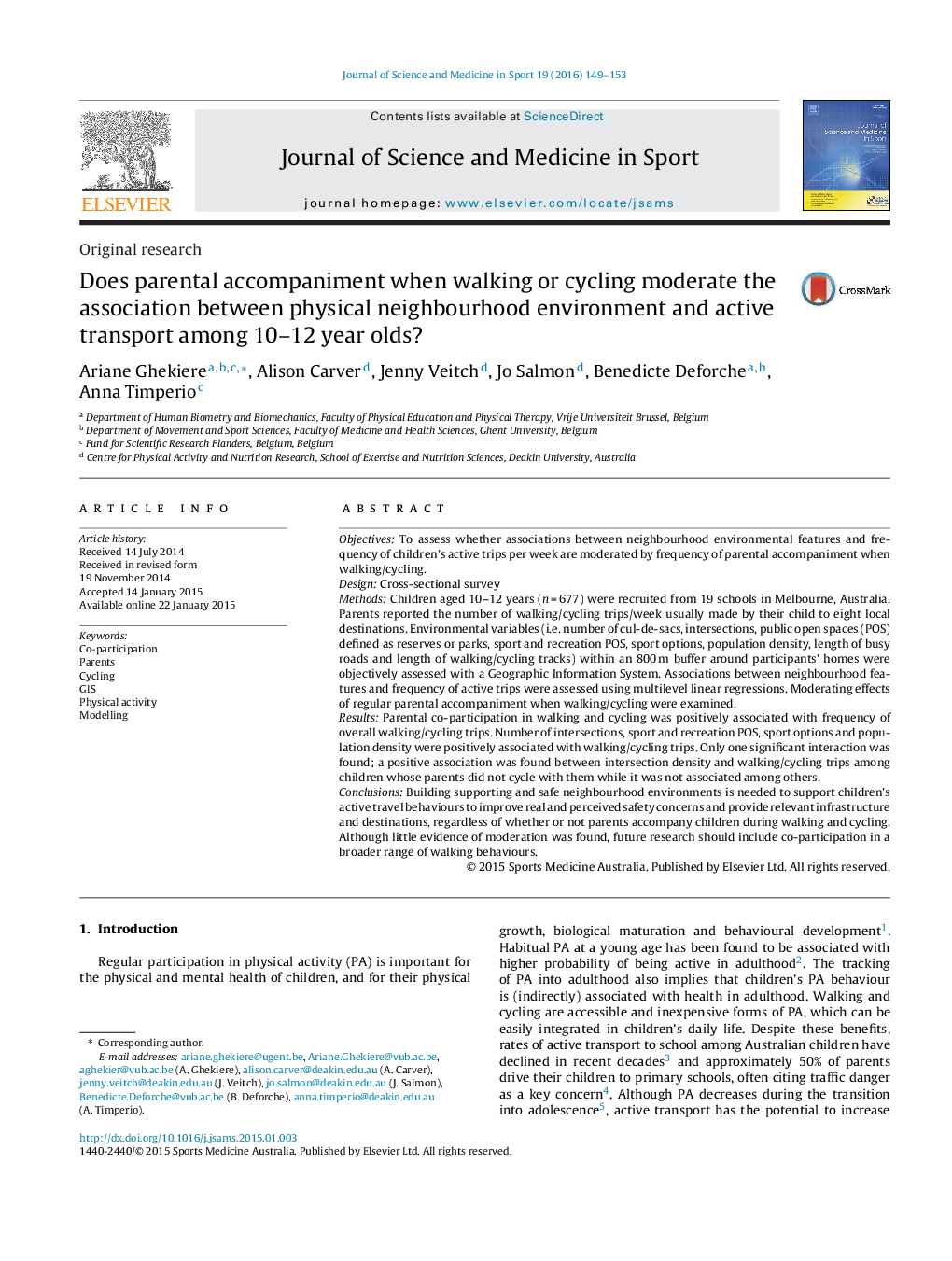| کد مقاله | کد نشریه | سال انتشار | مقاله انگلیسی | نسخه تمام متن |
|---|---|---|---|---|
| 2703876 | 1144658 | 2016 | 5 صفحه PDF | دانلود رایگان |
ObjectivesTo assess whether associations between neighbourhood environmental features and frequency of children's active trips per week are moderated by frequency of parental accompaniment when walking/cycling.DesignCross-sectional surveyMethodsChildren aged 10–12 years (n = 677) were recruited from 19 schools in Melbourne, Australia. Parents reported the number of walking/cycling trips/week usually made by their child to eight local destinations. Environmental variables (i.e. number of cul-de-sacs, intersections, public open spaces (POS) defined as reserves or parks, sport and recreation POS, sport options, population density, length of busy roads and length of walking/cycling tracks) within an 800 m buffer around participants’ homes were objectively assessed with a Geographic Information System. Associations between neighbourhood features and frequency of active trips were assessed using multilevel linear regressions. Moderating effects of regular parental accompaniment when walking/cycling were examined.ResultsParental co-participation in walking and cycling was positively associated with frequency of overall walking/cycling trips. Number of intersections, sport and recreation POS, sport options and population density were positively associated with walking/cycling trips. Only one significant interaction was found; a positive association was found between intersection density and walking/cycling trips among children whose parents did not cycle with them while it was not associated among others.ConclusionsBuilding supporting and safe neighbourhood environments is needed to support children's active travel behaviours to improve real and perceived safety concerns and provide relevant infrastructure and destinations, regardless of whether or not parents accompany children during walking and cycling. Although little evidence of moderation was found, future research should include co-participation in a broader range of walking behaviours.
Journal: Journal of Science and Medicine in Sport - Volume 19, Issue 2, February 2016, Pages 149–153
